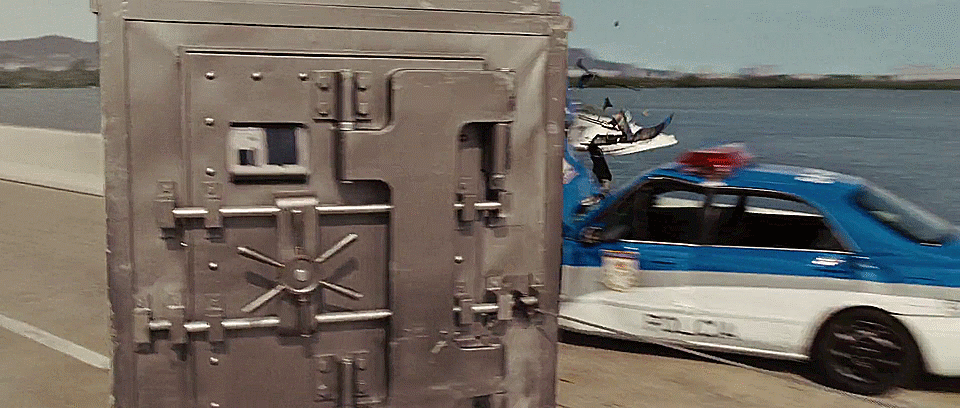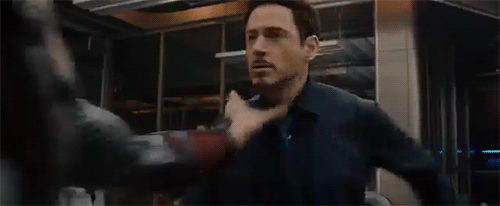Why do we even bother any more?
No seriously, why do we bother with comedy sequels? Of all the trends hollywood has pushed down the throats of the movie going public, comedy sequels are probably the absolute worst. They are notoriously difficult to pull off and more or less end up being a retread of the same plot of the original, sometimes with the same exact jokes and story beats. If you want proof of this phenomenon, just look at the Hangover franchise. Sure the original takes you on such a ride that you don't want it to end, but you don't want to go on the same ride over and over. The only time I can think of that didn't succumb to the consecutive comedy curse is 22 Jump Street, and that film was predicated on making fun of why comedy sequels are so historically bad. Ironically, comedies are probably the only genre of film that get less funny as their franchises go on. For instance, the original Gremlins scared the life out of me as a kid, but Gremlins 2 is a live action looney tunes movie. Think that's a joke? Here's the films opening.
No seriously, why do we bother with comedy sequels? Of all the trends hollywood has pushed down the throats of the movie going public, comedy sequels are probably the absolute worst. They are notoriously difficult to pull off and more or less end up being a retread of the same plot of the original, sometimes with the same exact jokes and story beats. If you want proof of this phenomenon, just look at the Hangover franchise. Sure the original takes you on such a ride that you don't want it to end, but you don't want to go on the same ride over and over. The only time I can think of that didn't succumb to the consecutive comedy curse is 22 Jump Street, and that film was predicated on making fun of why comedy sequels are so historically bad. Ironically, comedies are probably the only genre of film that get less funny as their franchises go on. For instance, the original Gremlins scared the life out of me as a kid, but Gremlins 2 is a live action looney tunes movie. Think that's a joke? Here's the films opening.
*rests case*
In the end, I found myself disappointed with Pitch Perfect 2. Which is strange because, 1) It's a movie about accapella, and 2) it's a sequel to a movie about accapella. Knowing all this going in, it was exactly what I expected it to be. The only problem was the first film had surprised me in so many ways and still to this day remains re-watchable, despite the fact that the euphoria of said surprise has dissipated. While the music in this film is still very much on point, and the film does make me laugh, that's just the vegetables. The meat and potatoes of this film were very much stale, which doesn't satiate a hungry viewer. The best thing I can say about this film is that unlike other comedy sequels, it doesn't retroactively make it's predecessor worse.
Sadly 'Pitch Perfect 2' doesn't exactly convince me otherwise.While I commend the film for being one of the first sequels in a while to put a 2 in it's title, it doesn't exactly open with bugs and daffy. Continuing the adventures of the Barden Bellas, Pitch Perfect 2 takes place in real time, 3 years after the events of the first film. The group has won success after success and are no longer the misshapen underdogs who needed something to prove. So naturally, the film's opening scene is a so so musical number that immediately knocks the group down a giant peg or two. They've not lost their talent or anything, but something occurs that labels them as national embarrassments. This makes them blacklisted from participating in competitions or recruiting new members. However, the Bellas ARE able to redeem themselves by participating in the a world championship, as the United States defending Accapella Collegiate champions. The opening is slightly abrupt, but once it gets the ball rolling the film picks up. Mostly.
The cast from the original return but they seem to have lost their charm. Previously, the cast was a rag tag group of gals who went through the scourge of team building, helping them to learn about one another. The sequel seems to have lost this heart as the ensemble cast has been relegated to a group of one note joke machines. There's the one who's promiscuous, the one who's fat, the one who's a lesbian, the one who's a control freak (even though she was the opposite of the control freak in the last film), the weird one who whispers and joining the one note joke crew is the one from a third world country and two seat fillers who seem to be a parody of the film's lack of character due to the fact that they're names aren't even established by the roll of the credits. While the original was known for it's abrupt comedy that played on stereotypes, it didn't come off as uninspired as it does in this film. Now when the group calls her Fat Amy, it's less of a clever joke but more of an eye roll inducer.
The smile will be forced.
Usually sequels feel the need to up the stakes by providing a number of unnecessary side quests that only serve to deviate from the original story and sap it's tension. Pitch Perfect 2 does the opposite in that, when you're watching the main story play out, you're checking your watch wondering when it's going to move on to that other thing. The first of these focuses on main character Beca, played by Anna Kendrick. Her story focuses on her anxiety of reaching her potential as a music producer, interning on the side, and dreading life beyond the safe college walls. It feels like the natural progression of what a story set in college should take as it resonates with the audience it's portraying. Aside from the dramatic aspect of it, the story provides some of the best jokes in the movie. This is due in great part to the role of Keegan-Michael Key, who plays her neurotic boss, who is on the brink of a psychotic break due to being surrounded by inept hipsters and hack artists.
The other story that makes the movie worthwhile is that of fan favourite Fat Amy. Her story is intertwined with Adam Devine's Bumper, who, although he's graduated college, still hangs around his old stomping ground. He and Amy carry on in a no strings attached relationship that, while ripe for humour, as it features two of the films best characters, also features an arc with more depth than expected. Whereas Beca's story deals with the worry many have about their career after college, Amy's tackles the flip side of that anxiety. Amy has to deal with the uncertainty of a relationship that carries on from one stage of her life, to the next, and wonder if she will be able to handle the certain dynamic change that will occur. These subplots make it all the more frustrating that Pitch Perfect 2's main story exists. There could've been a funny yet soulful story about the uncertainty of post-grad life and the risk of indecision, yet all that's given to us is a ho hum by the book story about losers who became winners, who are losers again and must become winners...again. The film attempts to weave in the deeper elements of the story into the plot but they end up getting the short end of the stick so the movie can make another joke about how much the lesbian in the group wants to do the girl with the revealing top.
The film has one other side plot that I almost failed to mention simply because, much like the film itself, I forgot about it. The only new character with any sort of character at all is Emily played by Hailee Steinfeld. Her character is a freshman at the college and is joining the Barden Bellas on the recommendation of her mother, a 'legacy Bella'. This portrays yet another instance in which the film could provide thoughtful insight into life after college, using the mother as the embodiment of being unable to let go of one's past, but the film does little to nothing with this story and here lies the great film Pitch Perfect 2 could have been.
Acca-ashes to ashes, acca-dust to dust.
However, there is another saving grace to Pitch Perfect 2, which naturally is it's mesmerizing musical pieces. Much like the first movie, this film provides a world much different from our own in which accapella is considered a treasured past time, rather than a neat gimmick on a youtube video. This is expanded when the Bella's meet the villains of the film, Das Sound Machine, the German accapella group that poses the biggest threat to the Bella's redemption. The interaction our heroes have with this group actually made for some of the funniest moments in the film as Anna Kendrick's character is unable to muster up a winning comeback to the insults of the aesthetically impeccable duo of Kommisar and Pieter Krammer. Humour aside, their group gave the best musical performances of the film (I never thought I'd see dubstep performed by an accapella group), even surpassing the group we're supposed to be rooting for. The movie doesn't even present the group as particularly dickish, unlike in Dodgeball where you rooted for Vince Vaughn's team because Ben Stiller was such an asshole, even though he was objectively more qualified that Vaughn.
Never have German villains been so likeable
There are of course, a number of notable celebrity cameos in this film. Comedies seem to be the only genre in which the break from reality that occurs when a misplaced celebrity shows up increases my enjoyment of the film. They provide a welcome distraction from the film's main story which is not just unfunny but also repetitious of the first film. The same sing-off from the first appears in this one, albeit on a grander scale. It's not as egregious a regurgitation as the fight scene in Anchorman 2, seeing as this one actually serves to be just as if not more entertaining than the scene in the first film. The announcers from the first film also return here and have inexplicable been given larger roles, even at one point showing up as runners of an accapella podcast that gives pre recorded commentary to a live event. As entertaining as Elizabeth Banks and John Michael Higgins can be, their moments in the film are cringe worthy at best.
In the end, I found myself disappointed with Pitch Perfect 2. Which is strange because, 1) It's a movie about accapella, and 2) it's a sequel to a movie about accapella. Knowing all this going in, it was exactly what I expected it to be. The only problem was the first film had surprised me in so many ways and still to this day remains re-watchable, despite the fact that the euphoria of said surprise has dissipated. While the music in this film is still very much on point, and the film does make me laugh, that's just the vegetables. The meat and potatoes of this film were very much stale, which doesn't satiate a hungry viewer. The best thing I can say about this film is that unlike other comedy sequels, it doesn't retroactively make it's predecessor worse.
A.N.R = 6.4/10



















